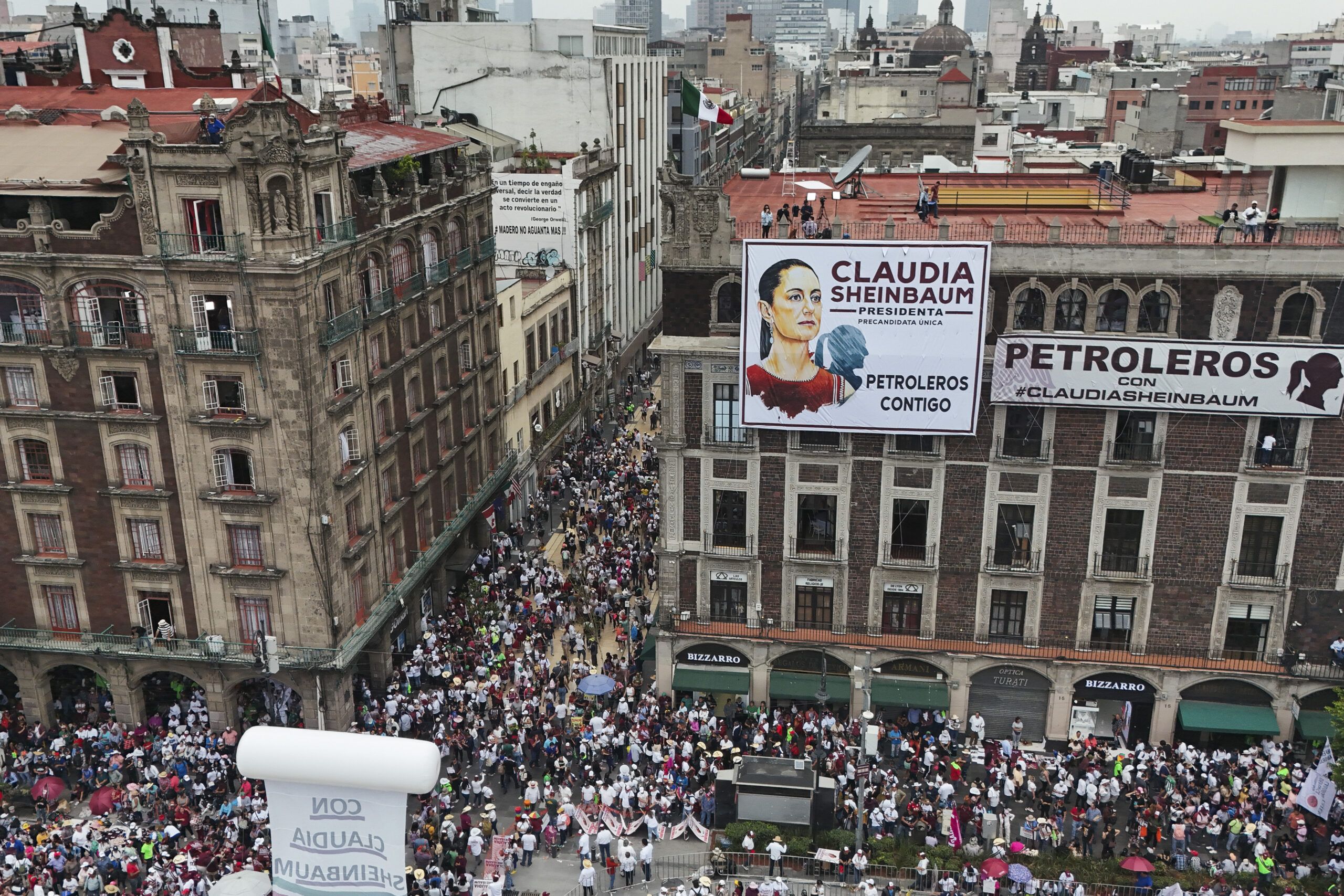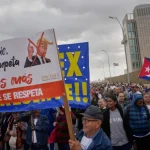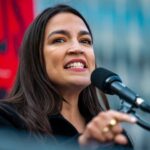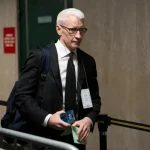

Mexico‘s 2024 elections have emerged as the most violent in its history, spurred mainly by violence from powerful drug cartels.
The 2024 election is set to be Mexico’s largest, with almost 100 million people eligible to vote. Aside from the presidency, 20,000 positions are at stake, including 128 senatorial and 500 congressional representative seats, according to Foreign Policy.
In addition to being the biggest, this year’s election is also the most violent — a think tank tracking the violence found that 34 candidates have been assassinated in this campaign season. The latest occurred on Wednesday when the popular mayoral candidate Alfredo Cabera was shot in the head at point-blank range in front of hundreds of supporters.
Answering a question from the Washington Examiner at a Foreign Policy live discussion, former Mexican ambassador to the United States Arturo Sarukhán told Foreign Policy Editor-in-Chief Ravi Agrawal that the current violence is unparalleled, and the blame is largely at the feet of Mexican President Andres Manuel Lopez Obrador and his Morena Party.
“Absolutely, we’ve never seen the number of candidates running for elected office killed as we have in this electoral process,” he said. “There was another one last night. The tally is now up to 34 candidates for elected office, mainly at the municipal, local, assembly, and state level … because the … public security paradigm that Lopez Obrador came into the presidency with is completely broken.”
“He came in running on a mantra of ‘hugs, not bullets,’ meaning that what he aimed to do was to emphasize harm reduction, to address some of the social dynamics that lead to violence and organized crime in Mexico,” Sarukhán said. “But the end game has been that his hugs not bullets paradigm has turned into a ‘hugs for thugs’ paradigm.”
He described the current order as a “Pax Narca,” leading to rising cartel violence, which has, in turn, led to increased fentanyl trafficking into the United States.
Sarukhán said that organized crime began to encroach into the electoral process in the 2021 midterms “when organized crime either suppressed or whipped the vote in favor of Morena, particularly in the northwestern states of Mexico.”
He said that electoral violence is the worst in jurisdictions on the northern border with the U.S., the Caribbean coast, and in the south.
“If you think of where the drugs go north and the guns come south, you can start understanding why organized crime decided to play a role in the elections in those states,” he added.
“Now the big fear with these 34 candidates murdered so far in this electoral cycle is that come someday; we may see organized crime rearing its head again, not only in terms of intimidating candidates that they don’t like, but also in terms of suppressing the vote, like what we did see in the midterms,” Sarukhán concluded.
Ana Quintana, Senior Policy Director with the Vandenburg Coalition, agreed with most of Sarukhán’s findings. Speaking with the Washington Examiner, she pinned the blame on two aspects of Lopez-Obrador’s reign — his “hugs not bullets” crime policy and chauvinistic attitude toward the U.S.
“But what I think can definitively be said, that, can empirically be measured is since AMLO has come into office, the security situation in Mexico has absolutely worsened,” she said. “The cooperation between the United States has decisively, like disintegrated to one of its lowest points in decades, and I don’t see something like that improving.”
Quintana went through several diplomatic incidents that have greatly harmed relations between the U.S. and Mexico. The frosty relations, along with Lopez-Obrador’s unwillingness to fight the cartels, have stripped Mexico of an effective way to contain cartel violence. Between the two major issues with the Mexican president, however, Quintana sees the deterioration of relations with the U.S. as being the decisive contributor to the growth of political violence.
“So it’s not so much that AMLO is a leftist… he’s left-leaning in many views,” she said. “But AMLO is what I think what’s even more concerning … for U.S. policy … it’s that it’s very nationalistic, in the sense that Mexico’s interest and what Mexicans want come first. To Hell with any agreement that I’ve made with the United States.”
While Quintana cautioned against attributing every act of political violence as part of a grand strategy from the cartel, stressing the number of local squabbles that have led to targeted killings, there is a logic to the general strategy of the cartels. Some of their apparent preference of the Morena Party is likely due to a desire to back the “winning horse,” but the party’s security policy largely plays into their favor.
“If I’m a member of a drug cartel, I’m thinking, ‘Okay, this is the individual… this is the party that not only controls… the presidency, but also controls the vast majority of the gubernatorialships, and I know these governors are going to be subservient to him,” she said, referring to Lopez-Obrador, who will likely remain the leader of the party until his death. “If that’s AMLO’s view on security policy, no one’s going to deviate from that. And so if you’re in the drug cartels, you’re thinking, all right, this definitely works out in my favor, because I know I have a guy who openly has met with… Chapo Guzman’s family, [and] openly has said, I don’t want to work with the United States.”
Lopez-Obrador’s successor, Claudia Sheinbaum Pardo, has pledged to continue his security policies, in contrast to her competitor, Bertha Xóchitl Gálvez Ruiz, who has urged a tougher approach to the cartels.
“We will deepen the strategy of peace and security, and the progress that has been made,” Sheinbaum said. “This is not an iron fist… This is justice.”
Violence, in general, has grown significantly under Lopez-Obrador. His term in office has seen a quarter more murders than under his predecessor, coming to about 170,000 total, Bloomberg reported.
CLICK HERE TO READ MORE FROM THE WASHINGTON EXAMINER
Paradoxically, Luis Rubio, chairman of the Center of Research for Development, told Foreign Policy that security remains the most important issue, though Lopez-Obrador retains his large popularity.
“In terms of the polls, the most important issue is security,” Rubio said. “Mexicans suffer from extortion, from being assaulted, from being killed. The numbers are staggering in every one of those areas.”







